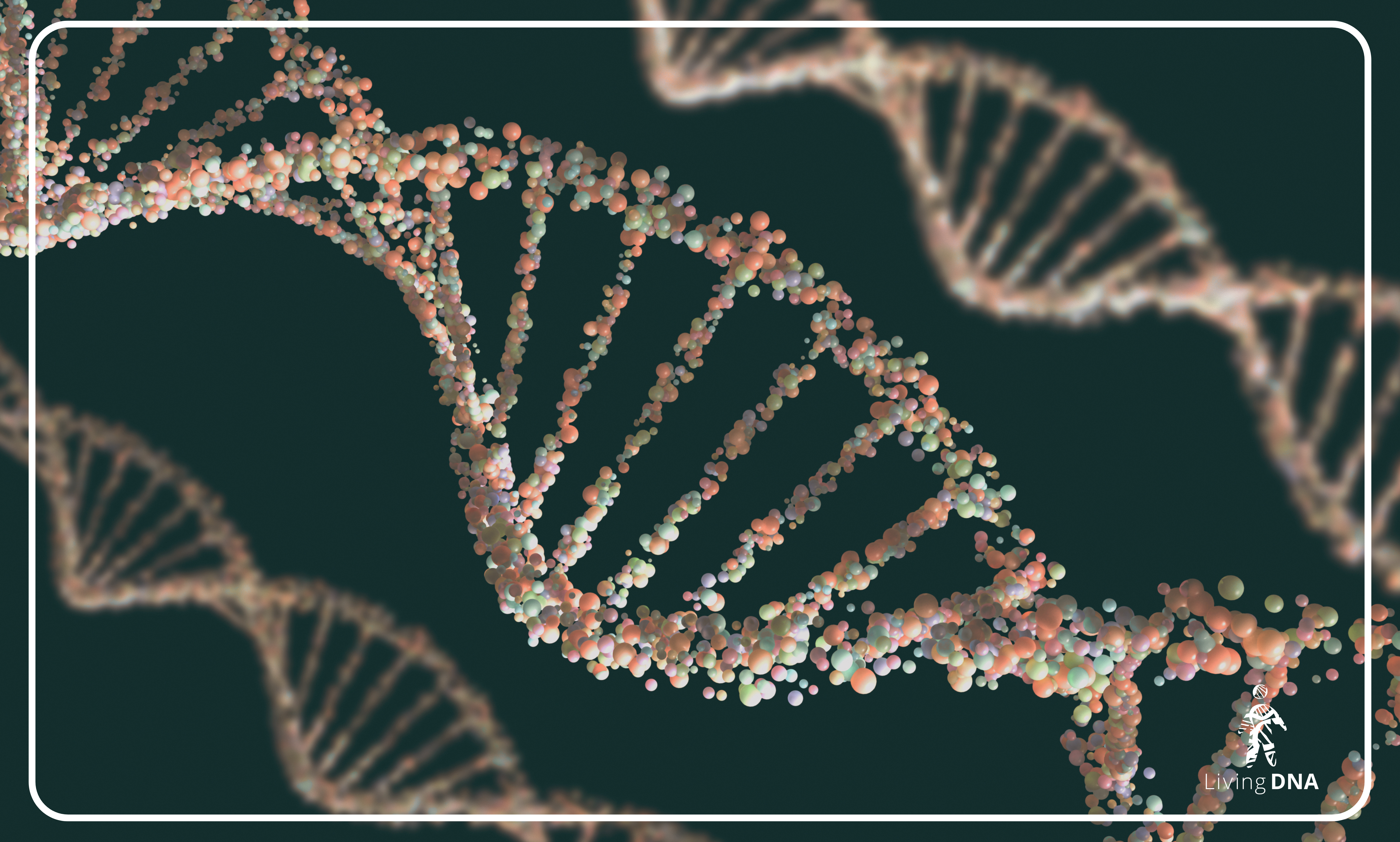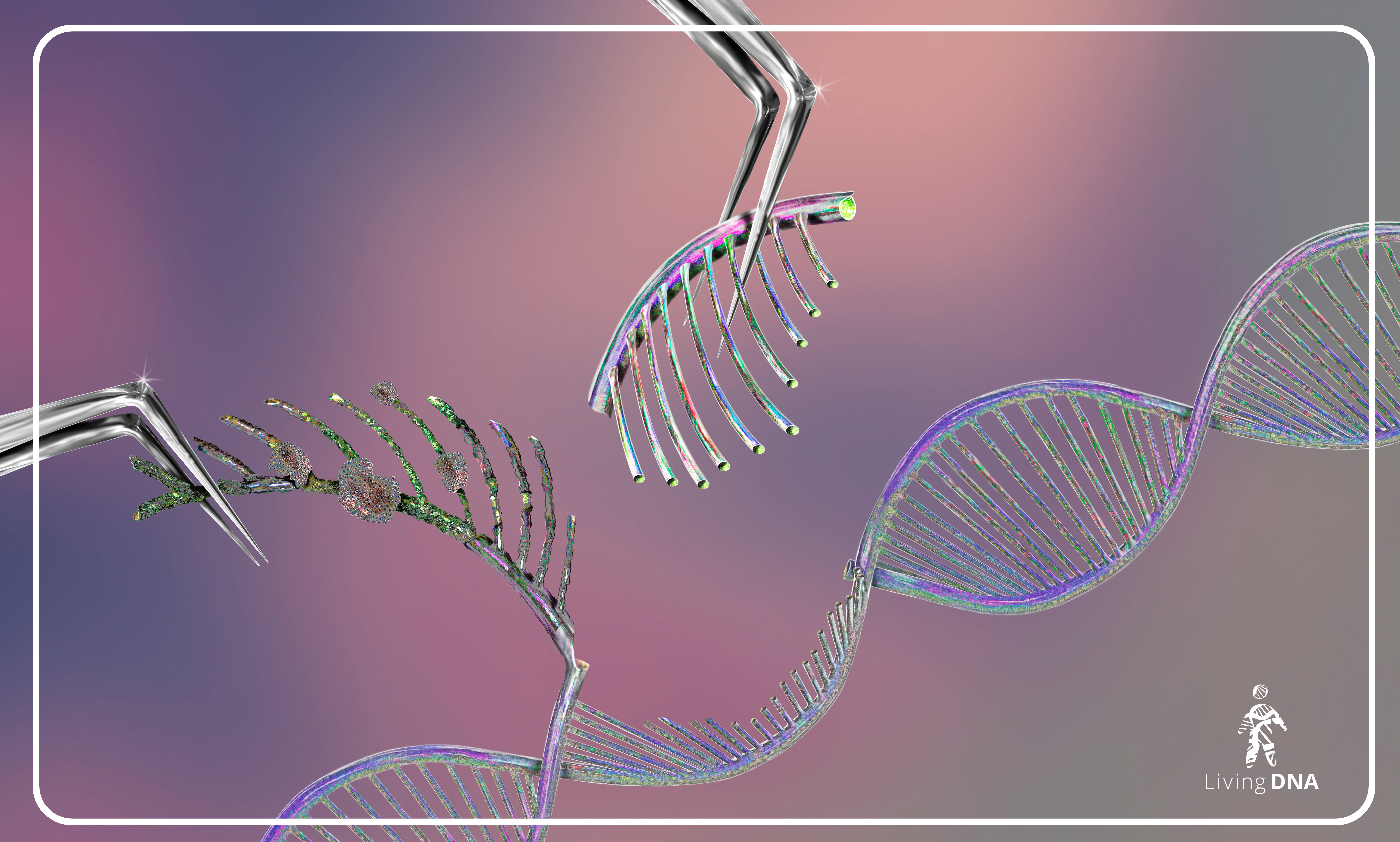For much of history, scientific discoveries have been credited to men, while the women behind the breakthroughs were overlooked, downplayed, or outright erased. But women have always been there - asking questions, conducting experiments, and laying the groundwork for the field of genetics as we know it today.
At Living DNA we recognise that women’s contributions to science, technology, and history have been vital, and we’re proud to be part of a company where women hold most of the major leadership positions. With 62.5% of our team being women, we see firsthand how women’s leadership drives innovation and progress.

This Women’s History Month, we’re celebrating the incredible scientists whose work has shaped our understanding of DNA and whose stories deserve to be told.
Jankai Ammal: Taking on Colonial Science
Jankai Ammal (1897 - 1984) was a trailblazer in more ways than one. Born into a community that was considered “backward” in a rigid caste system, she not only had to defy gender expectations but also overcome deep-seated caste prejudices. As an Indian botanist and cytogeneticist, she was the first woman to receive a PhD in botany in the United States. Despite facing dismissive attitudes both as a woman and due to her caste background, Ammal’s groundbreaking research into plant genetics - particularly with sugarcane and eggplant - challenged the status quo and laid vital groundwork for modern plant breeding.

Her determination to succeed against these societal odds is a testament to her strength and passion for science. Ammal’s work not only advanced out understanding of cytogenetics, it also paved the way for future generations of women and other underrepresented groups in the sciences.
Charlotte Aurbach: The Mother of Mutagenesis
Charlotte Aurbach (1899 - 1994) is often called the “Mother of Mutagenesis,” and for good reason. A German-born Jewish geneticist, she fled Nazi persecution and settled in Scotland, where she made one of the most significant discoveries in genetics: that chemicals could cause mutations in DNA.

Her 1940s research on mustard gas provided the first solid evidence that environmental factors could directly alter genetic material - an insight that would shape the future of genetics, cancer research, and toxicology. Despite facing discrimination as a Jewish woman in science, Auerbach’s work laid the foundation for understanding how genetic mutations occur, influencing everything from medicine to evolutionary biology.
Rosalind Franklin: The Unsung Hero of DNA’s Double Helix
No list of women in DNA research would be complete without Rosalind Franklin (1920 - 1958). Her story is infamous - brilliant scientist, crucial discoveries, and a legacy nearly lost to history.
Franklin’s work in X-ray crystallography provided the key data that James Watson and Francis Crick used to determine the double-helix structure of DNA. Her famous Photo 51 was the missing piece of the puzzle that allowed them to confirm the twisted-ladder shape of DNA. But when Watson and Crick published their Nobel Prize-winning discovery, Franklin’s name was barely a footnote.

Only decades later did she begin receiving the recognition she deserved. Today, Franklin stands as a symbol of countless women whose scientific contributions were overlooked or appropriated. Her work remains fundamental to everything we know about DNA structure and function.
Dr Mary-Claire King: The Geneticist who discovered the BRCA1 Gene
Dr. Mary-Claire King (born 1946) is a geneticist whose work has saved countless lives. In the 1990s she identified BRCA1, the first gene linked to hereditary breast and ovarian cancer. Her discovery revolutionised cancer research, making genetic screening a key tool for early detection and prevention.
For many - including me, your friendly Living DNA blog writer - this is more than just history. My own family has a strong history of breast cancer with many of my mum’s family having battled it more than once. Right now, I’m going through the genetic screening process myself. King’s work means that people like me have access to life-changing information that previous generations never had.

Beyond medicine, King has also used genetics to advocate for human rights. She pioneered the use of DNA to reunite families affected by political violence, helping to identify children stolen during Argentina’s military dictatorship. Her work exemplifies how genetics can be a force for both medical and social justice.
Dr. Emmanuelle Charpentier: CRISPR Pioneer and Nobel Prize Winner
If you’ve heard of CRISPR, chances are you’ve also heard of Dr. Emmanuelle Charpentier (born 1968). Along with Jennifer Doudna, she co-discovered CRISPR-Cas9, the revolutionary gene editing technology that allows scientists to precisely alter DNA. This discovery, which won them the Nobel Prize in Chemistry in 2020, has opened doors for treating genetic disorders, improving agriculture, and even combatting diseases like sickle cell anemia.

Charpentier’s research is shaping the future of medicine, proving that women continue to be at the forefront of genetics, innovation, and world-changing discoveries.
Women in DNA Science: Then and Now
These five women - and so many others - did more than advance genetics. They broke barriers, proved their worth in male-dominated fields, and left a legacy that continues to shape science today. Their work reminds us that education, mentorship, and representation matter.
At Living DNA, we believe that celebrating women isn’t just about honouring the past, it’s about inspiring the next generation. Women have been building the future of genetics for over a century, and they continue to do so today.

I am lucky to work along side amazing women at Living DNA. These women bring extraordinary expertise, creativity, and resilience to their fields, shaping the future of technology and scientific discovery. Beyond their professional skills, many of them are also mothers, balancing the demands of careers with the responsibilities of parenthood. Their ability to lead, innovate, and nurture demonstrates the power of multitasking, perseverance, and empathy. By championing these incredible women, we create a more inclusive, diverse, and dynamic industry where the next generation can see that brilliance and leadership are not limited by gender or life roles.
- Esmee Mortimer-Taylor, Living DNA's Operations and Customer Service Manager.
This Women’s History Month, we encourage everyone to learn, celebrate, and advocate. Because when we recognise the women who shaped our world, we don’t just honour history - we help to build a more equal future.
